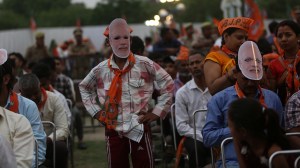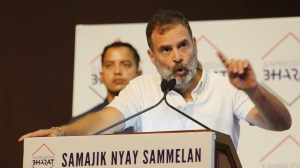- India
- International
Essential protection
There is urgent need to ensure that those keeping supply chains of essential items running are protected against COVID-19.
 Given the initial uncertainty and panic following the PM’s announcements, the move to ensure that supply lines for essential items — food, medicine and goods and services essential for agriculture, among others — is a necessary one.
Given the initial uncertainty and panic following the PM’s announcements, the move to ensure that supply lines for essential items — food, medicine and goods and services essential for agriculture, among others — is a necessary one.
Ever since Prime Minister Narendra Modi announced the 21-day nation-wide lockdown on March 24, the Union home ministry has issued four classificatory notes to expand the list of essential supplies and services that are to be available and accessible during this period. Given the initial uncertainty and panic following the PM’s announcements, the move to ensure that supply lines for essential items — food, medicine and goods and services essential for agriculture, among others — is a necessary one. However, it will not do to forget that those actually involved in keeping these supply chains going are as vulnerable to COVID-19 as anyone else, that being part of an “essential service” also makes a citizen more vulnerable to exposure. Moving forward, the task for governments at the Centre and in the states is twofold. First, they must ensure that the representatives of the state on the ground — the police and other civic administration officials — do not harass or obstruct those who work. at great risk to themselves, for the greater good during the lockdown. Second, and perhaps more importantly, every precaution must be taken to ensure that those working on every link of the supply chain are protected against the virus.
Complex supply chains for food items, for example, involve a large number of people interacting and handling produce, increasing the risk of a COVID-19 infection, as well as its spread to the general public. As on March 24, India had conducted only 25,144 tests, according to the Indian Council of Medical Research. This number is low — just 18 tests per million of population. The government’s strategy — understandable given the country’s population and inadequate medical infrastructure — has been to follow the “Italy model” rather than the “South Korea model”. While the former relies on isolation, social distancing and quarantines, the latter also includes mass testing. So far, it also appears that the number of positive coronavirus cases emerging from various states is directly proportionate to how much they have been testing: Kerala and Maharashtra, which have reported a large number of cases, have had more widespread testing than, say, Jharkhand, which has zero confirmed cases so far. Governments at the Centre and in the states are reportedly going to expand testing. As they do so, special care must be taken to ensure that supply chains, particularly for food and medicine, are not crippled by the pandemic.
Wherever possible, protective gear must be provided and protocols for testing and immediate quarantines, where necessary, must be put in place. This will not be an easy task — it will require monitoring and raising awareness about symptoms and self-isolation, in the field, from those involved in transport to mandis and warehouses to the retailer and the vegetable vendor.
EXPRESS OPINION
Apr 25: Latest News
- 01
- 02
- 03
- 04
- 05

































